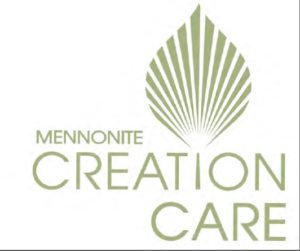 Andre Gingerich Stoner is director of Holistic Witness for Mennonite Church USA.
Andre Gingerich Stoner is director of Holistic Witness for Mennonite Church USA.
“Laudato Si,” a song composed by Francis of Assisi and based on Psalm 148 extols praises to God made known through the beauty and wonder of all creation. It is the basis of our English hymn, “All creatures of our God and King, lift up your voice and with us sing” and provided the title of the encyclical on creation care recently released by Pope Francis. This mirrors the title for a thirteen week curriculum, “Every Creature Singing,” developed this year by the Mennonite Creation Care Network.
In his first days in his new role, Pope Francis modeled humility and friendship with the poor.
Minutes after his election, he rejected the traditional red cape with ermine trim and later he shunned the regal papal apartments. On Maundy Thursday he washed the feet of a woman prisoner. It is remarkable how these simple gestures and his direct, heartfelt comments have set a new tone in the Catholic Church, have gained significant notice far beyond, and are a witness to the way of Jesus before a watching world.
Now, with his encyclical, “Laudato Si,” Pope Francis has introduced a strong moral voice into the conversation about the “care for our common home.”
The 184-page statement addresses the crisis posed by climate change. It explores the role of economic and technological development in bringing humanity to this moment, and highlights especially the impact of environmental degradation on the poorest communities.
Pope Francis grounds this encyclical in Christian faith and the teaching of the church, including writings of previous popes. The New York Times quoted Vincent Miller, professor of Catholic theology at the University of Dayton in Ohio:
“The basic idea is, in order to love God, you have to love your fellow human beings, and you have to love and care for the rest of creation … It gives Francis a very traditional basis to argue for the inclusion of environmental concern at the center of Christian faith.”
Catholic bishops and diocese are distributing the encyclical, organizing symposiums and study groups, and planning sermons based on it. A Catholic friend of mine in South Bend spent the entire day after the encyclical was released reading and studying the statement. He is not alone. But the Pope’s words will reach far beyond the Catholic Church.
In post-Christendom, a watching world sees a smaller Christian church more as a whole, rather than sorting out different strands, streams and voices. A recent report on the Pope’s statement in a Sunday front-page story of the New York Times, for example, quoted Mennonite Brian Sauder, licensed for ministry in Illinois Mennonite Conference and Central District Conference, as well as Presbyterians, evangelicals and others.
When the Pope speaks and acts, he is the face of the Christian church for many across the world. This calls us, as Mennonites, to be attentive to the words of the Pope and to engage with Christian brothers and sisters from other traditions, including Catholics.
When they offer a witness for compassion, justice and the care of creation, we can celebrate, applaud and be challenged.
We are fortunate that in the last year, the Mennonite Creation Care Network (MCCN) has developed an excellent adult curriculum for congregations, small groups and individuals.
curriculum for congregations, small groups and individuals.
“Every Creature Singing” grounds care for God’s creation in scripture and theological reflection, provides tools for being more attentive to one’s own surrounding neighborhood and offers concrete spiritual and household practices for deepening commitment to care for God’s good creation.
The curriculum is the result of a resolution adopted by delegates at the Mennonite Church USA assembly in Phoenix in 2013. I commend it to you. MCCN is eager to hear about your experiences with it and for your congregation to find ways to be part of the growing circle of Mennonite congregations seeking to live out their faith in their care for creation.

